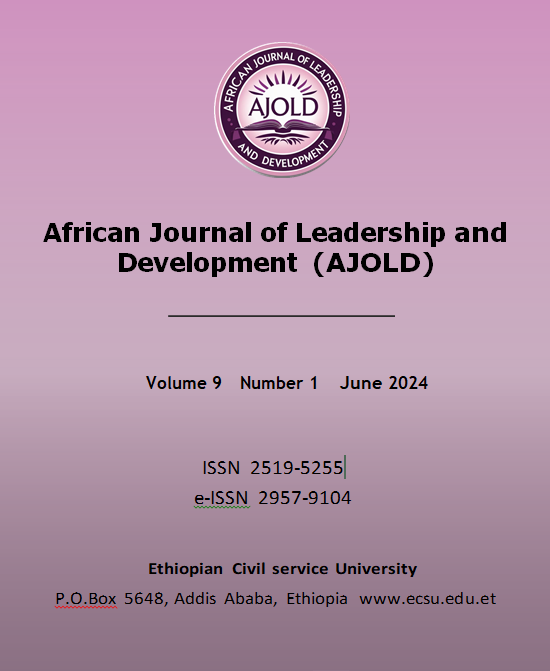Exploring the Prevalence of Gender Based Violence in Ethiopia’s Special Economic Zones: Lessons from Hawassa Industrial Park
DOI:
https://doi.org/10.63990/2024ajoldvol9iss1pp73-89Keywords:
Gender, Industry park, Gender based violenceAbstract
The purpose of this study was to examine the prevalence of GBV and its facilitating factors in Ethiopian industrial parks by taking evidence from the Hawassa Industrial Park. A mixed research approach and descriptive research design were applied. Quantitative data were collected from 345 respondents using a convenience sampling technique, while 10 participants were interviewed by applying purposive sampling. The quantitative and qualitative data were collected and analyzed using descriptive statistics, chi-square, and binary logistic regression models. The results showed that GBV is prevalent in the park, as all female workers in the park experienced at least one form of it, which is dominantly psychological violence (94.3%), followed by sexual (76.2%) and physical violence (76.2%). Moreover, a chi-square test for independence result also showed that young female workers were more likely to experience sexual violence than adult female workers. Female workers from rural origins faced a higher likelihood of experiencing sexual violence compared to those from urban origins. Additionally, female workers who lived alone were more likely to experience physical and sexual violence than those who cohabited. Regarding the facilitating factors, the qualitative finding revealed that lack of awareness and economic problems (personal), cultural differences (work-related), poor implementation of policies and low compensation and benefits (organizational), and patriarchal culture (societal) factors are facilitating the act of GBV. In addition, the binary logistic regression result also showed that living condition, marital status, and education level of the respondents affect the GBV experience. Moreover, most of the GBV incidences were underreported, mainly due to fear of employment-related retaliation. Therefore, awareness-raising about GBV should be done among female workers, particularly for those who are from rural areas, through various capacity development training interventions in collaboration with stakeholders. In addition, minimum wage should be set to ensure a decent life for the park female workers. Furthermore, the implementation of local and international labor and anti-harassment-related laws and policies should be ensured in the park compound, and outside, comprehensive GBV risk assessment and prevention systems should be in place, accountability of perpetuators should be ensured, and also labor unions should be strengthened so as to prevent and reduce GBV prevalence in the park.
Downloads
Published
How to Cite
Issue
Section
License
This work is licensed under a Creative Commons Attribution-NonCommercial 4.0 International License






